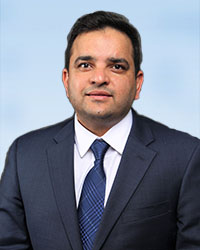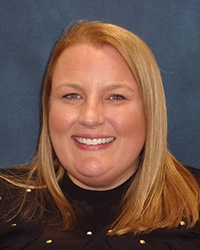WVU Medicine physicians are leading experts in minimally invasive endoscopic procedures, offering customized and comprehensive weight-loss options to help you safely reach your goals.
For patients who have difficulty losing weight through diet and exercise and don’t want to undergo weight-loss surgery, WVU Medicine gastroenterologists perform incisionless, endoscopic, non-surgical weight loss procedures. Shailendra Singh, MD, is an advanced gastroenterologist who specializes in endoscopic non-surgical weight loss.
Endoscopic non-surgical weight-loss procedures are performed on an outpatient basis with general anesthesia, using a flexible tube equipped with a tiny camera inserted through the mouth to reach the stomach. Because there are no abdominal incisions, the risk of severe adverse effects from endoscopic non-surgical weight loss are low. Patients usually return to their normal routine after a few days of recovery at home.
At your evaluation appointment, you’ll undergo a screening process to help our gastroenterologists decide which procedure is right for you. You may be a candidate for endoscopic non-surgical weight loss if:
-
- You have a body mass index of 30 or higher.
- You are not able to lose weight with diet and exercise alone.
- You’ve had weight-loss surgery, but regained weight.
- You have a physical condition making you ineligible for weight-loss surgery.
- You prefer not to undergo weight-loss surgery.
Endoscopic sleeve gastroplasty
Transoral gastric outlet reduction
Endoscopic revision of sleeve gastrectomy
Gastric balloon
Endoscopic management of surgical complications
With our wide variety of endoscopic devices and techniques, including suturing, stents, and clips, we diagnose and manage patients with gastrointestinal concerns after surgery, such as gastrointestinal strictures, fistulas, leaks, or perforation. Using endoscopic ultrasound, we can also alleviate bile duct, pancreas, and gallbladder issues after gastric bypass surgery.
Like weight-loss surgery, endoscopic weight loss requires a commitment to a healthier lifestyle, changes to your diet, and regular exercise to help you achieve long-term weight-loss success. Learn more about WVU Medicine’s wellness, weight loss, and preventive care services to help you attain your goals.
Appointments and Directions
304-598-4855
Email: [email protected]
Physician Office Center
1 Medical Center Drive
Morgantown, WV 26506



